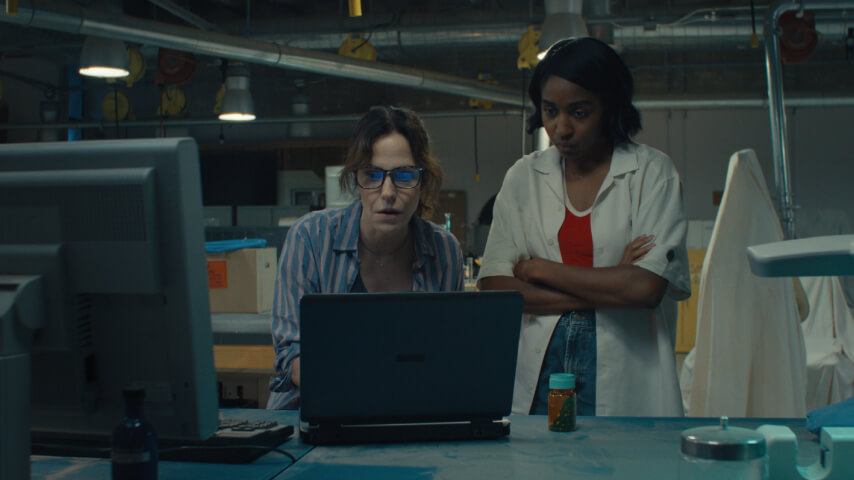
Exploring the Emotional Depths of "Omni Loop"
"Omni Loop," directed by Bernardo Britto, emerges as a thought-provoking blend of science fiction and emotional exploration. The film stars Mary-Louise Parker as Zoya Lowe, a bestselling science fiction novelist grappling with an extraordinary diagnosis: a black hole within her chest that leaves her with only five days to live. This premise, while fantastical, serves as a powerful catalyst for Zoya's journey through time and self-discovery.
The film’s unique approach lies not in flashy action sequences, but in its rich emotional undercurrents and inventive narrative structure. Zoya’s condition allows her to traverse back in time one week using a special pharmaceutical, presenting an opportunity to confront her fate and attempt to rewrite her story. In this context, Zoya's experience echoes Kurt Vonnegut's "Slaughterhouse-Five," where the protagonist becomes "unstuck in time." This nonlinear storytelling draws viewers into Zoya's struggle, emphasizing the poignant realities of mortality and the choices we make.
Also Read:- Colin Farrell’s Astonishing Transformation inThe PenguinMarks a New High in His Career
- Kylie Minogue Announces New Album and Her Biggest World Tour in Over a Decade
Early in the film, we witness Zoya in a hospital setting, supported by her husband Donald and their daughter Jayne. A darkly humorous moment unfolds as hospital staff momentarily break into cheers during a game, highlighting the absurdities of life even amidst tragedy. This blend of humor and melancholy continues as Zoya realizes the gravity of her situation, igniting her quest for understanding and control over her circumstances.
The narrative further deepens when Zoya teams up with Paula, a science student played by Ayo Edebiri. Their dynamic shifts the film into a buddy-comedy territory, as they collaboratively seek to decode the implications of Zoya's time-traveling pills. This partnership provides a fresh lens through which to explore themes of friendship, regret, and the desire to alter one’s fate.
Visually, "Omni Loop" is arresting, employing rapid editing techniques that mimic the chaotic, fragmented nature of Zoya's mind. The film's pacing may initially disorient viewers, but this deliberate style ultimately serves to immerse us in Zoya's reality. As the plot unravels, we learn to navigate its complexities, reflecting the way our own memories and perceptions shape our understanding of time.
Despite its narrative challenges, the performances elevate the material. Parker delivers a nuanced portrayal, capturing Zoya's multifaceted emotions—fear, hope, and the weight of her impending loss. Edebiri complements Parker's performance, infusing their scenes with warmth and humor. Their chemistry invites us to invest emotionally in their journey, making the film's existential musings resonate even more deeply.
"Omni Loop" ultimately stands as a meditation on the human condition, grappling with the notion that not all mysteries can be solved, nor all problems fixed. It prompts us to reflect on the moments we cherish and the relationships we hold dear. While it may not fully exploit its time loop concept, it still offers a captivating exploration of love, loss, and the intricate tapestry of our lives. As we witness Zoya’s attempts to navigate her fate, we are reminded of the fleeting nature of time and the profound impact of our choices.
Read More:

0 Comments